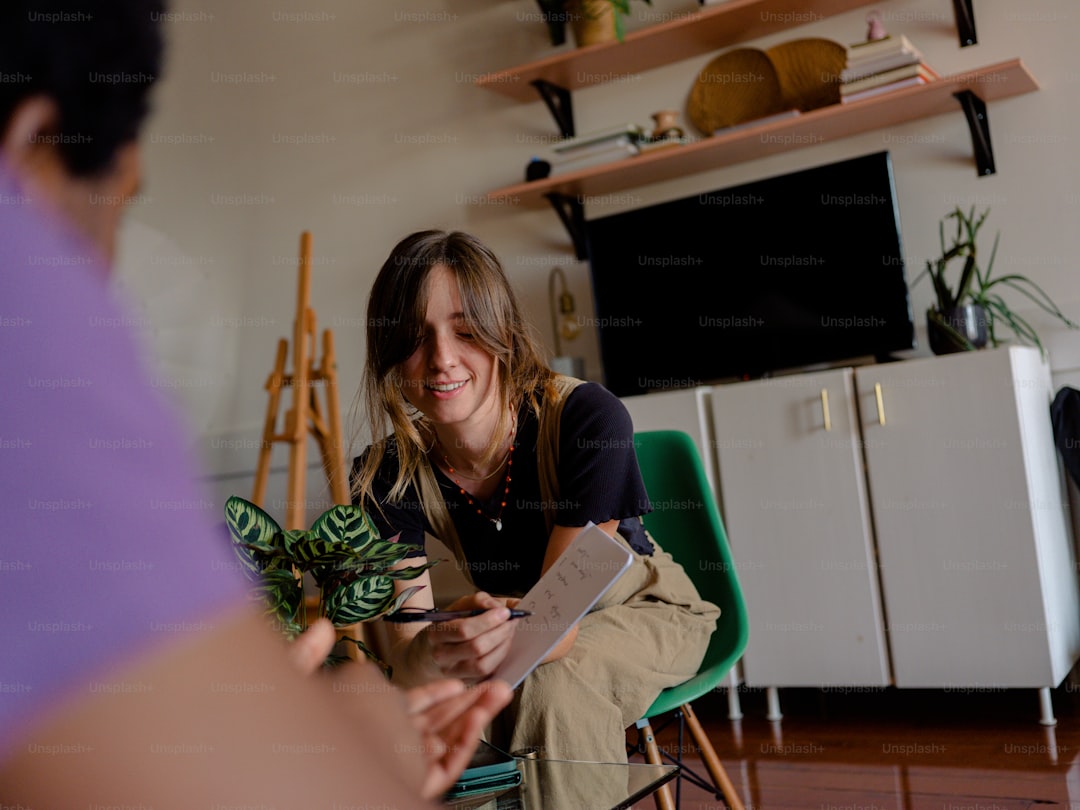Exploring the Best Coworking Communities for Digital Nomads

Introduction
The digital nomad lifestyle has turned the world into a giant office. With reliable internet, a laptop, and a willingness to explore new cultures, professionals can trade a fixed desk for a passport‑filled itinerary. Yet the freedom to move does not eliminate the need for structure, focus, and community. That is where coworking communities step in. They provide more than just a desk and a Wi‑Fi password; they create ecosystems that nurture productivity, collaboration, and personal growth. This article dives deep into the most vibrant coworking communities around the globe, examines what makes them stand out for digital nomads, and offers practical guidance for selecting the right space for your next adventure.
Why Coworking Communities Matter for Digital Nomads
A Blend of Work and Belonging
Remote work can be isolating. While coffee shops and hotel lobbies supply internet, they rarely offer the sense of belonging that a shared office environment cultivates. Coworking spaces bring together people from diverse industries, ages, and backgrounds, fostering spontaneous conversations, mentorship opportunities, and potential partnerships. For nomads who thrive on human interaction, these communities become a home away from home.
Consistent Infrastructure
A reliable power supply, ergonomic furniture, meeting rooms, and high‑speed internet are non‑negotiable for anyone delivering client work or running a startup. Coworking operators invest in professional‑grade infrastructure, ensuring that a sudden thunderstorm or a faulty hotel router does not derail a deadline. In many cases, spaces also provide backup generators, redundant internet lines, and on‑site IT support.
Flexibility Built In
Nomads often travel on short‑term schedules, moving every few weeks or months. Traditional office leases are impractical. Coworking memberships are designed for flexibility: daily passes, weekly tickets, monthly plans, and even pay‑as‑you‑go options let you scale up or down without long‑term commitments. Some operators also offer “global passes” that grant access to any of their locations worldwide, a boon for itinerant professionals.
Community‑Driven Events
Most coworking hubs schedule regular events—skill‑share workshops, speaker series, networking mixers, and wellness activities. These gatherings break the monotony of solo work and provide a platform to learn new tools, discover local culture, or simply unwind with peers. For digital nomads, attending such events can accelerate integration into a new city and expand professional networks organically.
Criteria for Choosing a Coworking Community
When scouting for the perfect space, digital nomads should evaluate several factors beyond price alone.
Connectivity Quality
Speed, stability, and latency matter, especially for video calls, large file transfers, and cloud‑based development. Look for spaces that publish their internet specs and offer backup connections. Some premium hubs even provide dedicated fiber lines and Ethernet ports at each desk.
Location and Accessibility
Proximity to public transport, cafes, restaurants, and accommodation options influences daily convenience. A space situated near a metro station or a well‑connected bus route reduces commute time and expands the range of neighborhoods you can explore after work.
Community Culture
Each coworking brand cultivates a distinct vibe—some lean toward tech startups, others attract creatives, freelancers, or corporate teams. Review member testimonials, social media feeds, and event calendars to gauge whether the community aligns with your personality and professional goals.
Amenities and Services
Beyond desks and Wi‑Fi, consider what extra services are provided: private phone booths, podcast studios, on‑site cafés, gym access, childcare, or legal and accounting support. These perks can add significant value, especially during longer stays.
Pricing Transparency
Clear pricing structures prevent surprise fees. Check if the membership includes taxes, access to meeting rooms, printing, or event tickets. Some spaces charge extra for premium services; understand these costs before committing.
Sustainability and Ethics
An increasing number of nomads value eco‑friendly operations, fair labor practices, and community outreach. Spaces that use renewable energy, promote zero‑waste policies, or partner with local NGOs often attract socially conscious members.
The Most Vibrant Coworking Communities by Region
Below is an overview of standout coworking ecosystems across continents. The list is not exhaustive but highlights hubs that consistently receive high marks from traveling professionals.
Southeast Asia
Bangkok, Thailand – The Hive
The Hive blends modern design with a strong emphasis on community building. Members enjoy daily “Coffee Talk” sessions where entrepreneurs share challenges and successes, as well as weekly yoga classes. High‑speed fiber internet (up to 300 Mbps) and multiple meeting rooms make it suitable for both solo freelancers and small teams. The location near the BTS Skytrain ensures easy travel to the city’s many markets and street‑food stalls.
Bali, Indonesia – Dojo Bali
Set on the island of Canggu, Dojo Bali has become a pilgrimage site for digital creatives. The space offers beachfront views, a rooftop lounge, and a dedicated mentorship program pairing newcomers with seasoned founders. In addition to fast Wi‑Fi, Dojo provides a “wellness package” that includes surf lessons, meditation workshops, and nutrition coaching. Its global membership pass lets you work from any Dojo location worldwide.
Ho Chi Minh City, Vietnam – Toong
Toong’s design celebrates Vietnamese craftsmanship, featuring handcrafted woodwork and local art. The community is a blend of startups, NGOs, and freelance journalists, fostering interdisciplinary collaboration. Regular “Pitch Night” events attract investors from the region, offering members a platform to showcase ideas. With a 250 Mbps fiber connection and 24‑hour access, Toong accommodates varying work schedules.
East Asia
Tokyo, Japan – Impact Hub Tokyo
Impact Hub is part of a worldwide network focused on social entrepreneurship. The Tokyo hub provides a tranquil environment amidst the bustling metropolis, with a library of impact‑focused resources and a mentorship pool of seasoned changemakers. Members can attend “Impact Talks” featuring thought leaders from NGOs, government, and private sectors. The space offers high‑speed internet and a dedicated “Quiet Zone” for deep work.
Seoul, South Korea – FastFive
FastFive targets early‑stage startups and tech talent. Its “Launch Lab” program offers seed funding, legal advice, and pitch practice. The community’s “Hackathon Wednesdays” attract developers from across the country, fostering a collaborative spirit. High‑capacity internet (up to 500 Mbps) and an on‑site tech support team ensure seamless operations.
Taipei, Taiwan – The Hive Taipei
The Hive’s Taiwanese branch mirrors its global philosophy of openness and creativity. The space hosts “Design Sprint” workshops, bringing designers, developers, and marketers together to prototype solutions in 48 hours. A rooftop garden provides a serene escape for coffee breaks, while a partnership with local bike‑share programs encourages eco‑friendly commuting.
South Asia
Bangalore, India – WeWork (Multiple Locations)
WeWork’s presence in Bangalore offers a blend of global brand consistency and local flavor. Community managers organize “Tech Talk Tuesdays” featuring engineers from leading Indian startups. The spaces provide reliable internet, multiple meeting rooms, and an on‑site café serving regional snacks. Membership flexibility includes daily passes for those on short stays.
Kathmandu, Nepal – Kathmandu Co‑Work
Located near the historic Thamel district, Kathmandu Co‑Work caters to freelancers, NGOs, and adventure guides. The community’s “Mountains & Minds” series invites guest speakers to discuss sustainable tourism and remote work challenges in high‑altitude environments. With a focus on affordability, the space offers a 100 Mbps connection and a quiet lounge for focused work.
Europe
Berlin, Germany – Factory Berlin
Factory Berlin positions itself as an “innovation factory,” bringing together tech startups, designers, and investors. The campus includes a “Studio” for creators, a “Lab” for data scientists, and a “Marketplace” for freelancers to find project work. Regular “Founder Fireside” chats provide insight into scaling businesses across Europe. The space boasts a 1 Gbps fiber backbone and a robust security system.
Lisbon, Portugal – Heden
Heden is a community‑driven hub located in the historic Alfama district. It offers a mix of co‑working desks, private offices, and a “Creative Lab” equipped with 3D printers and VR gear. The “Lisbon Hack” weekend events attract developers from across the Iberian Peninsula. Members benefit from a partnership with a nearby coworking café, providing additional meeting spaces.
Barcelona, Spain – Aticco
Aticco’s three locations in Barcelona emphasize design, sustainability, and entrepreneurship. The “Aticco Green” campus features solar panels and a rooftop garden used for networking events and weekend workshops. The community runs an “Accelerator Program” that pairs startups with mentors from leading European firms. High‑speed internet and multilingual staff make it a comfortable choice for non‑Spanish speakers.
North America
Austin, Texas – Capital Factory
Capital Factory is a hybrid accelerator and coworking space that supports tech entrepreneurs. Its “Pitch Night” attracts investors from across the United States, while the “Mentor Match” program connects members with seasoned founders. The campus includes a podcast studio, a maker space, and a 200 Mbps internet connection with backup LTE.
Vancouver, Canada – The Network Hub
Nestled in the vibrant Gastown neighborhood, The Network Hub blends coworking with a strong focus on community outreach. Weekly “Community Impact” panels discuss topics such as climate action, social equity, and remote work policies. The space offers a 500 Mbps fiber connection, ergonomic furniture, and a rooftop terrace with panoramic city views.
Mexico City, Mexico – Homework
Homework’s design reflects the city’s artistic heritage, featuring murals from local artists. The community hosts “Café & Code” mornings where developers collaborate over coffee, and “Storytelling Sundays” for writers and marketers. With a 300 Mbps internet plan and multiple private booths, the space caters to both collaborative and focused work styles.
South America
Medellín, Colombia – Selina Co‑Working
Selina’s co‑working spaces are integrated into its hostels and hotels, offering a seamless blend of work and travel. The Medellín location provides a “Digital Nomad Village” where members can attend language exchange events, salsa lessons, and tech meetups. High‑speed Wi‑Fi (250 Mbps) and 24‑hour access make it a popular choice for long‑term travelers.
Buenos Aires, Argentina – AreaTres
AreaTres is a community of freelancers, designers, and social entrepreneurs. Its “Creative Commons” area encourages collaborative projects, while “Tech Talks” bring in speakers from the Argentine startup ecosystem. The space provides a 150 Mbps connection, on‑site printing, and a small café serving local pastries.
São Paulo, Brazil – Cubo
Cubo is a venture‑backed coworking hub that hosts Brazil’s most promising startups. The community benefits from an “Investor Day” where venture capitalists meet founders, and a “Growth Lab” offering mentorship in scaling businesses. The campus includes a 1 Gbps fiber line, multiple conference rooms, and a rooftop garden for networking events.
Africa
Cape Town, South Africa – Workshop17
Workshop17 positions itself as a “creative tech hub,” attracting designers, developers, and content creators. The community runs a “Code & Coffee” series on Saturday mornings, and a “Design Sprint” bootcamp every quarter. With a 200 Mbps fiber connection and a focus on sustainability (solar panels on the roof), the space offers both reliability and eco‑friendly credentials.
Nairobi, Kenya – iHub
iHub is one of Africa’s most iconic tech incubators, providing coworking desks, mentorship, and access to a network of investors. The “iHub Talk” series invites global thought leaders to discuss topics ranging from fintech to agritech. High‑speed internet (300 Mbps) and a dedicated server room support data‑intensive projects.
Accra, Ghana – Impact Hub Accra
Impact Hub’s Ghanaian branch emphasizes social entrepreneurship and community development. Members can participate in “Impact Labs” that focus on solving local challenges through technology. The space offers a 150 Mbps connection, a small library of African business literature, and partnerships with local NGOs for volunteer opportunities.
Oceania
Melbourne, Australia – The Commons
The Commons is a community‑first coworking space that hosts weekly “Skill Share” sessions, where members teach each other everything from Photoshop to public speaking. With a 500 Mbps fiber link and a quiet “Focus Zone,” the space accommodates both collaborative and deep‑work needs.
Wellington, New Zealand – The Hive Wellington
The Hive’s New Zealand location mirrors its global brand of openness and creativity. It offers a “Startup Sprint” program that pairs early‑stage founders with mentors and potential investors. The space includes a podcast studio, a small kitchen serving locally sourced food, and a 300 Mbps internet connection.
Community‑Driven Features that Set Top Spaces Apart
Mentorship and Coaching
Many leading coworking hubs provide structured mentorship programs. Whether it is a weekly office hour with a seasoned founder or a formal accelerator track, these services help nomads accelerate personal and professional growth without having to leave the space.
Skill‑Exchange Markets
Internal marketplaces where members list services—graphic design, copywriting, software development—enable bartering and collaborative project building. This internal economy reduces the need for external freelancers and strengthens community bonds.
Wellness Integration
Physical and mental health programs are increasingly common. Yoga classes, meditation rooms, standing desks, and on‑site gyms contribute to a holistic work environment. Some spaces even partner with local health providers for discounted therapy or nutritional counseling.
Cultural Immersion
Spaces that organize local tours, language lessons, and cooking workshops help nomads connect with the host city beyond the office. This cultural integration can improve work‑life balance and inspire creativity.
Sustainable Practices
Green certifications, waste‑reduction initiatives, and renewable energy usage signal a commitment to environmental responsibility. For nomads who value sustainability, these practices can be a deciding factor.
Practical Tips for Digital Nomads Selecting a Coworking Space
Test the Internet Before You Commit
If possible, arrange a short trial day or a virtual tour that includes a speed test. Verify that the advertised bandwidth is consistently delivered, especially during peak hours.
Look for Flexible Cancellation Policies
Travel plans can change unexpectedly. Choose memberships that allow you to pause or cancel without hefty penalties. Some operators provide a “rain‑check” day that can be used later if you miss a booked slot.
Evaluate Community Engagement
Join the space’s social media groups or Slack channels before arriving. Observe the level of interaction, the frequency of events, and the overall tone. A lively online community often translates to an active on‑site environment.
Consider Your Work Rhythm
If you work late into the night, ensure the space offers 24‑hour access or a “night owl” desk. Conversely, if you thrive on structured office hours, a space with defined opening times may help maintain discipline.
Assess Extra Costs
Meeting room bookings, printing, coffee, and event tickets can add up. Some memberships bundle these services, while others charge per use. Calculate an estimated monthly cost based on your expected usage.
Leverage Global Passes
If you travel frequently, a global membership (e.g., WeWork All‑Access, Regus Flex) can provide seamless entry into multiple locations, often at a discount compared to buying separate day passes.
Prioritize Safety and Security
Check that the space has secure entry systems, CCTV, and a reliable emergency plan. For women traveling alone, a space with a reputation for inclusivity and safety can be especially important.
Technology and Connectivity Essentials
Redundant Internet Sources
Top-tier coworking spaces often combine fiber, cable, and LTE backups. This redundancy ensures that a single line failure does not interrupt work. Ask the staff about their failover protocols.
Secure Networks
A separate guest Wi‑Fi is standard, but the network used for workstations should be encrypted and isolated. Look for spaces that provide VPN recommendations or even an on‑site VPN server for added security.
Device Charging Infrastructure
USB‑C power hubs, wireless charging pads, and ample electrical outlets reduce the need for adapters and power strips. Some spaces also offer “charging lockers” where you can safely store devices while you work.
Collaboration Tools
Many coworking operators integrate booking systems for meeting rooms, digital signage for community announcements, and mobile apps for member networking. Familiarity with these tools can streamline your daily routine.
Data Privacy
If you handle sensitive client data, verify that the space adheres to local data protection regulations (GDPR, CCPA, etc.) and that there are policies in place for physical data security.
Cost Considerations and Budget Strategies
Daily vs. Monthly Passes
Short stays often benefit from a daily pass, while a month‑long project may be cheaper with a monthly membership. Calculate the per‑day cost for each option based on your expected stay length.
Tiered Memberships
Most operators offer tiered plans—Hot Desk (open seating), Dedicated Desk (personal station), Private Office (enclosed space). Choose the tier that aligns with your need for privacy versus community interaction.
Group Discounts
If you travel with a partner or a small team, inquire about group rates. Some spaces provide “team packages” that reduce the per‑person cost for multiple desks.
Membership Add‑Ons
Consider whether you need additional services such as mail handling, locker rentals, or premium meeting room access. Adding these a la carte can increase total spend, so weigh their value carefully.
Local Alternatives
In some cities, community‑run coworking spaces or university‑affiliated hubs may offer lower rates while still delivering reliable infrastructure. These options often have a strong local flavor.
Future Trends Shaping Coworking Communities
Hybrid Physical‑Digital Hubs
Post‑pandemic, many operators are blending physical coworking with virtual membership. Members can attend events online, reserve desk time via an app, and access a digital “community lounge” that mirrors the on‑site experience.
Micro‑Spaces in Suburban Areas
As remote work expands beyond city centers, smaller coworking pods are appearing in residential neighborhoods, offering quieter environments closer to home. These micro‑spaces often focus on specific niches, such as creatives or health professionals.
AI‑Powered Amenities
Some forward‑thinking spaces employ AI to manage room bookings, optimize lighting based on occupancy, and provide personalized productivity insights. These technologies can enhance comfort and efficiency.
Sustainable Design
Eco‑friendly construction materials, rainwater harvesting, and carbon‑neutral operations are becoming standard expectations. Coworking brands that prioritize green design attract environmentally conscious nomads.
Community‑First Business Models
Revenue models are shifting from pure desk rental to value‑added services like consulting, legal assistance, and startup funding. This evolution strengthens the sense of belonging and offers members pathways to growth beyond the workspace.
Conclusion
Coworking communities have evolved from simple shared desks to dynamic ecosystems that nurture productivity, collaboration, and personal development. For digital nomads, choosing the right space is as much about the quality of internet and amenities as it is about the vibrancy of the community, cultural immersion opportunities, and alignment with personal values. By evaluating connectivity, location, culture, and cost, and by staying aware of emerging trends, nomads can craft a work environment that fuels creativity while they explore the world. Whether you’re coding in Bangkok, designing in Berlin, or brainstorming in Cape Town, the right coworking community can turn any city into a launchpad for success.
Random Posts

Curated Collections of Apps and Media for the Travel‑First Lifestyle
Discover the essential apps, books, podcasts and tools that empower digital nomads and remote workers to stay connected, manage money, find safe stays, stay healthy and productive while traveling.
1 day ago

Nomad Accommodation Secrets Finding Home Anywhere
Treat each stay as a flexible tool: ask what minimum you need to stay productive, how much budget you can spend, and which culture or lifestyle you seek. Align these three questions to turn chaos into a clear home-anywhere plan.
2 months ago

Maximizing Efficiency in Distributed Teams with Smart Connectivity
Learn how reliable, secure and adaptive connectivity can turn globally dispersed talent into a high-performing team, delivering the speed and cohesion of a co-located office.
1 month ago

Top Digital Nomad Hotspots and Must Have Travel Gear for Your Next Adventure
Discover top digital nomad hotspots and the essential gear to stay productive, comfortable and safe on the road, from Bali to Lisbon, plus the best tech, travel bags and safety tools for your next adventure.
1 month ago

Simplified Guide to International Tax Obligations
Learn how to navigate tax residency rules, avoid double taxation, and stay compliant while you travel the world. This quick guide turns complex international tax duties into clear, actionable steps.
2 months ago
Latest Posts

Essential Software Every Remote Professional Should Use
Master remote work with essential tools: instant messaging like Slack, high definition video calls such as Zoom, and asynchronous voice apps. Streamline communication, stay connected and boost productivity.
1 day ago

Mastering Remote Work Productivity for Digital Nomads and Freelancers
Learn proven habits, tools, and tactics that help digital nomads and freelancers stay focused, deliver quality work, and maintain a sustainable lifestyle while traveling the world.
1 day ago

Tech‑Friendly European Towns Perfect for Remote Living
Discover Europe’s best small towns where fast internet, affordable living and vibrant tech communities let you work remotely while soaking up historic charm, lakeside views or mountain air.
1 day ago